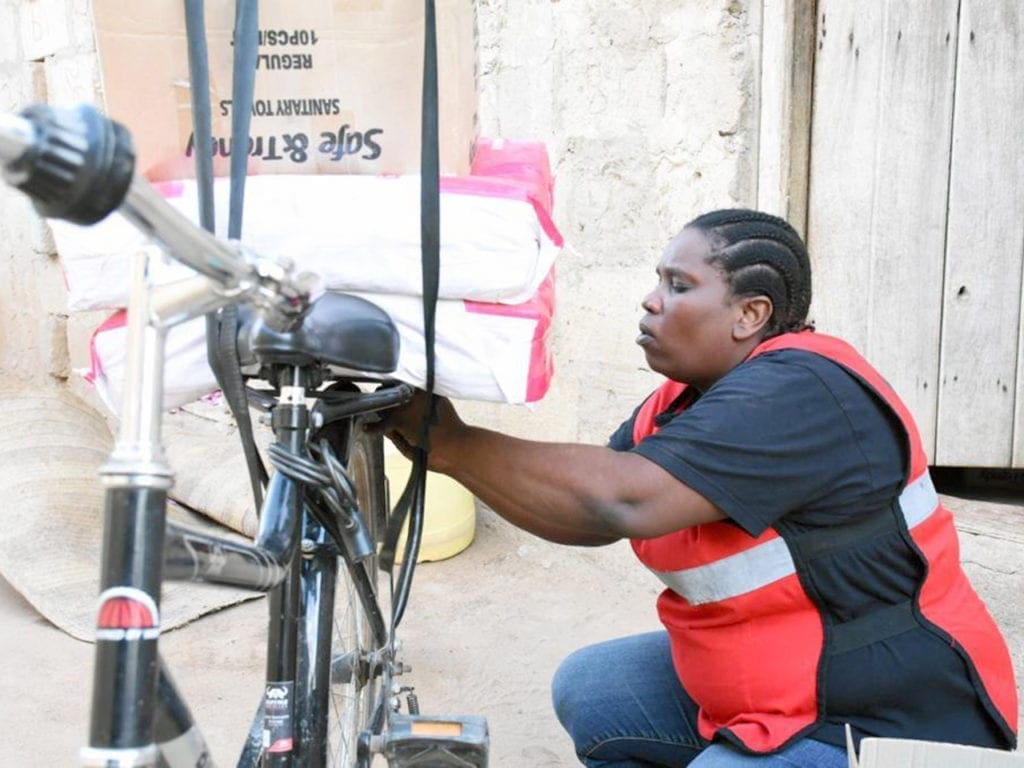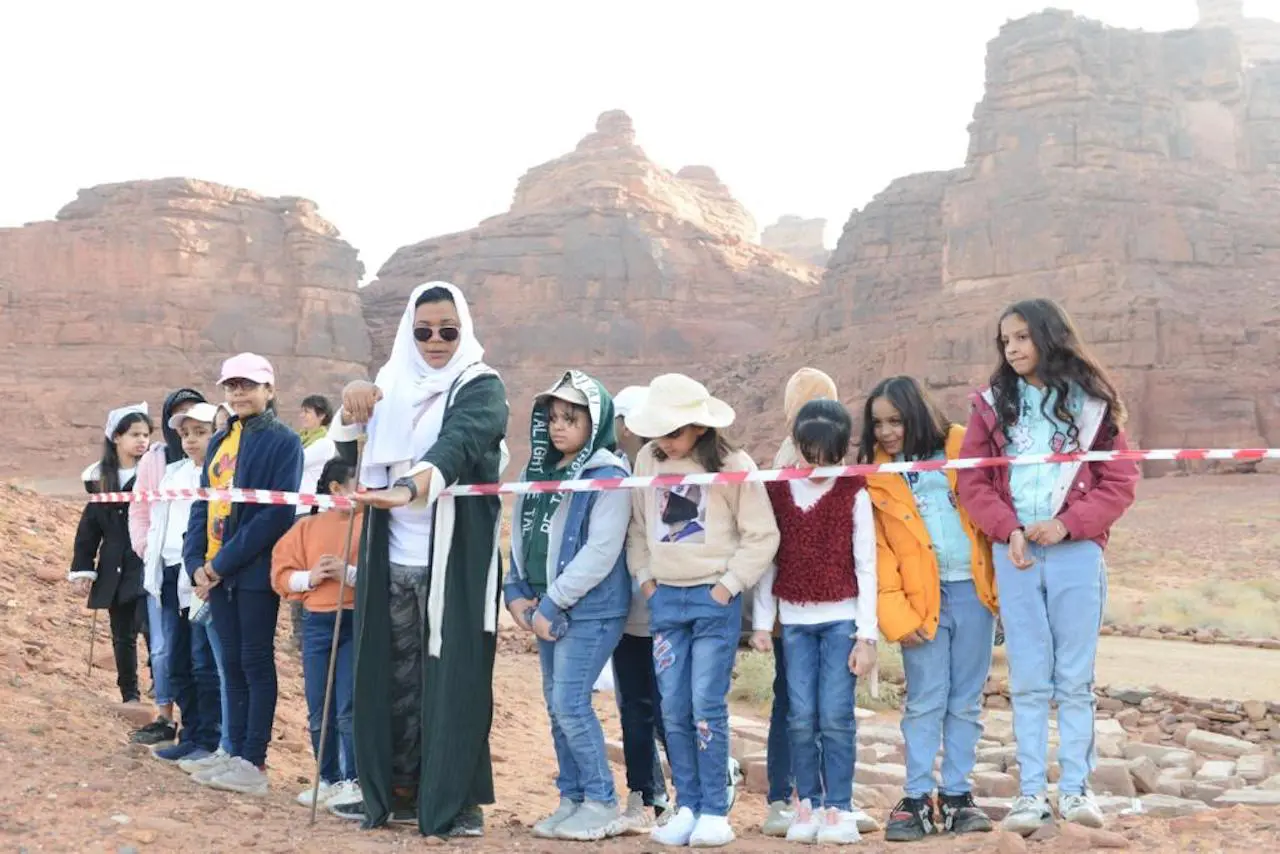Keeping Kenya’s girls in school one pad at a time
Touched by the experience I had with a young girl, I started asking for sanitary pads from friends and relatives. My campaign began.
- 3 years ago
July 4, 2021
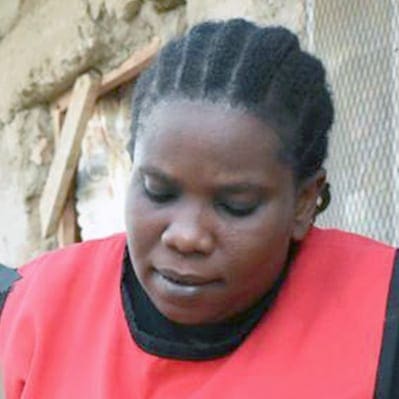
TANA RIVER COUNTY, Kenya — As a teenager, I could not afford sanitary pads, which caused me to miss classes. It was shameful, and I lost hope, eventually dropping out of school.
I took on manual labor in the village to make a little money before joining the Red Cross. One day, I saw a schoolgirl crying. When I asked her what happened, she told me she was having her period and could not afford sanitary pads.
My father raised me because my mother died when I was young, and I missed out on the female guidance I needed. Now it is my mission to help the girls in my country and keep them in school.
Touched by the experience I had with this young girl, I started asking for sanitary pads from friends and relatives. My campaign began.
I remember the shame
Every day when I wake up, I think about that girl out there who may have missed school because she is having her period but cannot afford sanitary pads. I remember the shame I felt.
Motivated by this, I started a sanitary pad distribution campaign in 2016. To date, I have reached more than 30,000 girls in three sub-counties within Tana River County.
My determination attracted international attention, and this year, to my surprise, I won the much-coveted Florence Nightingale Medal.
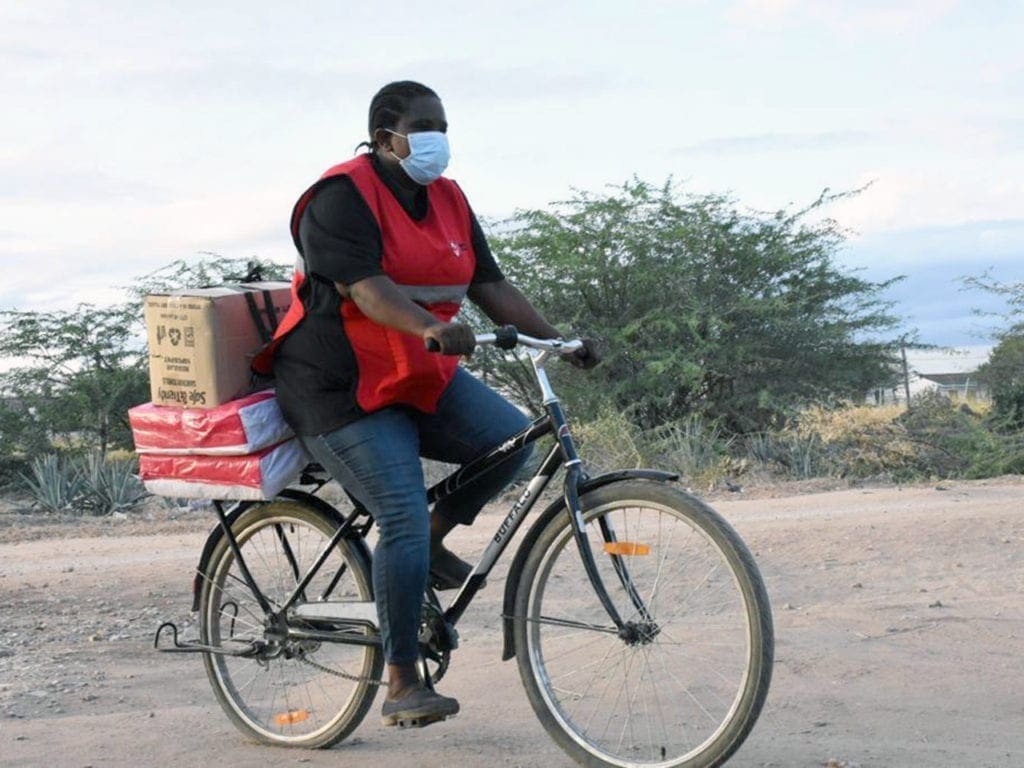
On the road with a bicycle
Every day, I wake up at 4 a.m., sort and load cartons of sanitary pads, and distribute village-to-village.
I use a bicycle to distribute the pads I collected from donors — mostly friends and relatives. Sometimes when the distribution location is far from home, I hire a car. I must pay the driver and buy fuel.
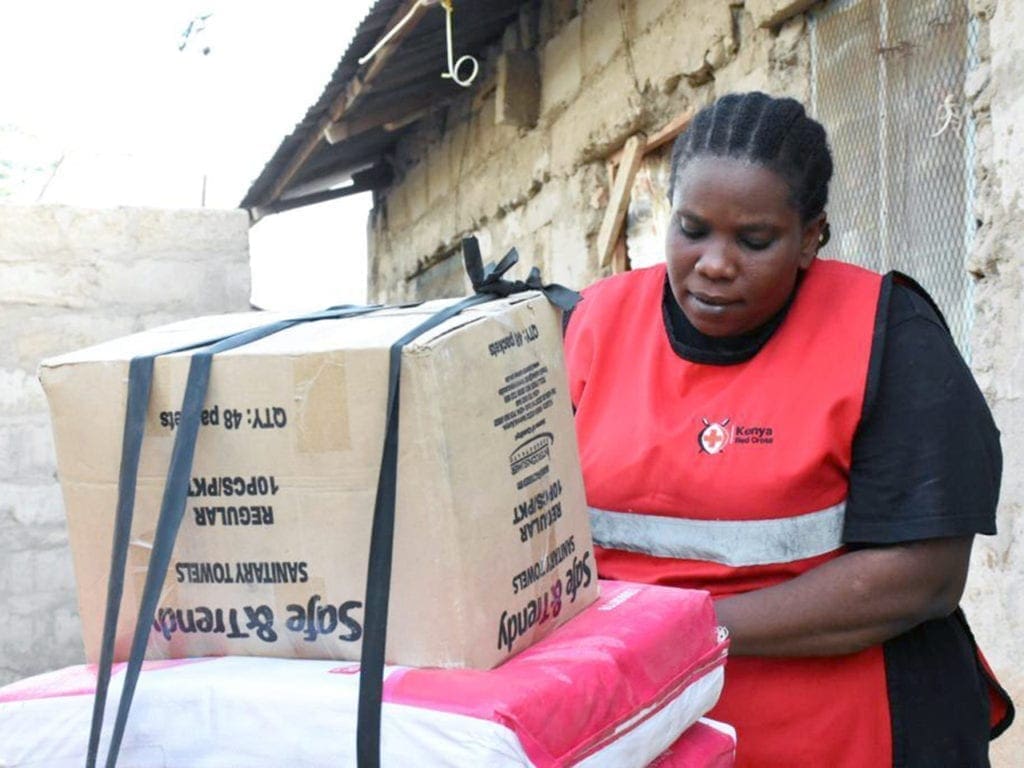
I have asthma, but I do it anyway, and I carry my inhaler with me. Some friends have criticized and deserted me. They question why I toil all day for no payment when I have my health issue. I even became the laughingstock of my community at one point. I continue anyway, guided by the desire to be of service to these young girls.
After distribution, I go to the Red Cross offices, where I also do volunteer work. At the end of the day am so drained, I can barely hug my children.
Helping the schoolgirls has trickled down to the community. I give one packet of sanitary pads to a girl in many instances, and she shares them with the entire family. Even mothers lack supplies. Many families have to choose between buying food and sanitary pads.
In a county where many live on less than a dollar a day, there is a slim chance a pad will make it into the budget.
Sex exploitation and early marriages
Tana River County is one of the most remote and most impoverished parts of Kenya.
Motorbike riders often take advantage of young girls by giving them little favors in exchange for sex. Girls may give in because they can use the money to buy supplies like sanitary pads. The trend has led to many underage pregnancies.
Here, poverty rates are so high that some parents force their daughters into early marriages. The little dowry they get by marrying their young daughters supports the entire family.
Currently, there are three schoolgirls I know who are pregnant due to poverty and deception by irresponsible men in the community. The parents share in the blame. They have failed in their supervisory duty.
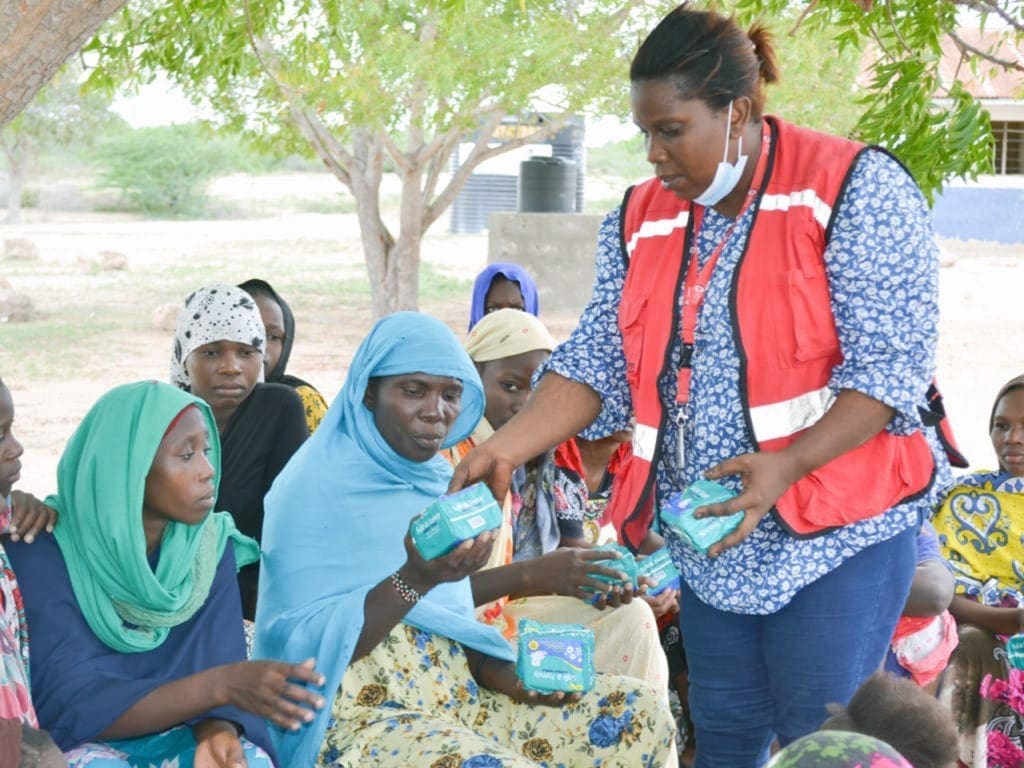
Outreach and awareness
Today, I have an extensive network, and I talk to parents and girls. When I speak to parents, I explain the campaign and how they can be supportive.
My community is conservative so talking about menstruation is taboo in some circles. I have devised methods to engage them, and as a result, I often receive boxes of pads from well-to-do parents.
I also run a girls’ club, which is an engagement platform where I discuss the dangers of early marriage, pre-marital sex, and the importance of good values.
When COVID-19 hit, I faced a new challenge as the government restricted gatherings. To continue, I engaged parents and girls one-on-one. They told me stories they would not have said in a group discussion.
For the men who exploit innocent girls, my appeal to them is that they should instead throw a pad in my basket to reach the needy.
I believe girls, just as much as boys, are the future of our community. Empowering them at the educational level is the best foundation.
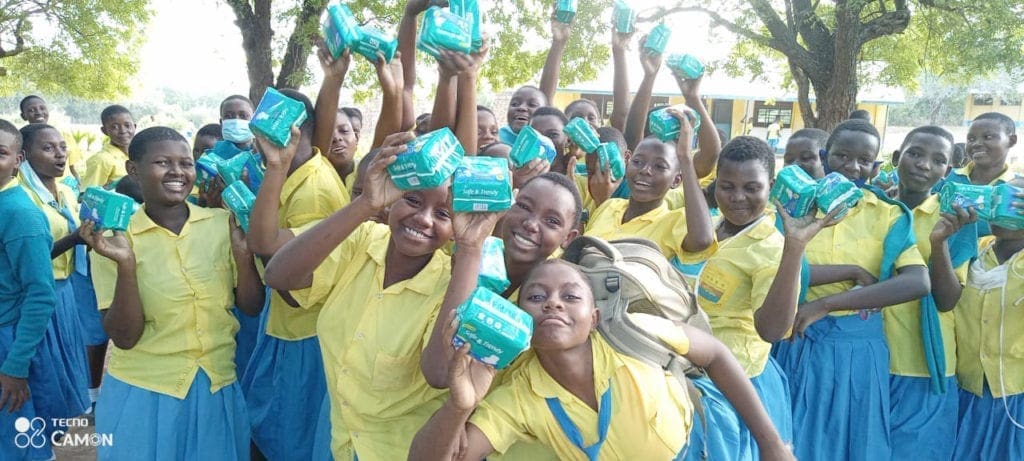
On winning the Florence Nightingale Medal
I have never even been to the capital city of Nairobi, but my work has received global recognition.
I was awarded the Florence Nightingale Medal by the International Committee of the Red Cross (ICRC). It recognizes nurses or nursing aides who have brought positive change to the community through their courage, hard work, and devotion.
Normally I would have traveled to Geneva to receive the award, but COVID-19 prevented that, so I will receive the medal in Kenya.
When you work for the sake of bringing change, you don’t think of things like awards. When they notified me, it reminded me that someone saw my determination and wanted to honor that.
This effort energizes me to work hard and bring hope and smiles to the girls in my community.
This award goes to all those who donate to my campaign and every girl who benefits from it.
Big ambitions for the future
My first goal is to make reusable sanitary pads as a sustainable solution for my country. Reusable pads would ease the financial burden on struggling families and keep girls in class.
I am appealing to the county authorities to set aside a budget for the project. I could lead at the level of distribution because I have the data and understand the demographics.
We have seen projects like this in other parts of Kenya and developing countries in Africa. A packet of 15 reusable pads can last at least half the year.
Secondly, I want to further my work on girls’ behalf to see them receiving the same opportunities as boys. It begins by gradually changing perceptions, like overcoming the taboo of discussing menstrual periods and embracing modern ways of living.
Third, I want to enlarge my collection base and device modalities to enable more people to donate to the charity. Many may want to give support to the girls but don’t know how to reach me. Social media is an excellent avenue to mobilize people of goodwill and collect more sanitary pads.
Through all of this, I want to keep close contact with the girls in the years ahead and measure progress.
Ultimately, we need government investment into the community to empower these girls economically. The inability to buy a sanitary pad is a precise measure of poverty, and that measure keeps girls out of school, where they would receive the advice that enables them to make the right choices in the future.

